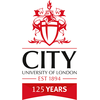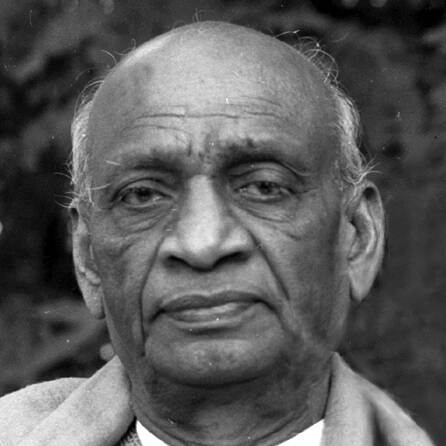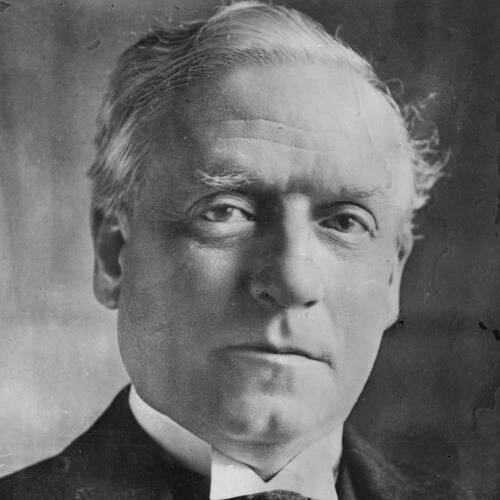City, University of London: Statistics
Updated:


| Position | Category |
|---|---|
| #513 of 14,131 | In the World |
| #202 of 2,785 | In Europe |
| #41 of 163 | In the United Kingdom |
| #32 of 131 | In England |
| #7 of 35 | In London |
| #44 of 1,002 | For Optometry |
| Top50% | For 190 other topics |
Quick Review
- Type
- Non-profit
- Funding
- Public-private
partnership - Highest Degree
- Doctorate
- Website
- city.ac.uk
- Languages
- English
- Acceptance rate
- 52%*
* The City, University of London is among the institutions that don't provide data on acceptance rates. This might happen because the university has programs where applicants only need to meet admission requirements to enroll and don't necessarily compete with others.
We estimate the above acceptance rate based on admission statistics of closely ranked nearby universities with similar research profiles that do publish such data.
Acceptance rate & Admissions
| Admissions Requirements | Include: General Certificate of Education (GCE) with 2 Advanced ('A') level passes, or 1 'A' level pass and 2 Advanced Supplementary ('AS') passes, or equivalent approved school-leaving qualification from the UK or overseas |
|---|---|
| Academic Calendar | October to June |
Research profile
City, University of London is a world-class research university with 32,580 scientific papers published and 776,680 citations received. The research profile covers a range of fields, including Liberal Arts & Social Sciences, Computer Science, Engineering, Physics, Political Science, Law, Medicine, Biology, Environmental Science, and Business.
City, University of London majors
by publication & citation count
Annual publication & citation counts
| Year | Publications | Citations |
|---|---|---|
| 1992 | 232 | 1539 |
| 1993 | 261 | 1681 |
| 1994 | 334 | 1998 |
| 1995 | 322 | 2349 |
| 1996 | 350 | 2466 |
| 1997 | 331 | 2745 |
| 1998 | 368 | 3261 |
| 1999 | 358 | 3152 |
| 2000 | 391 | 3724 |
| 2001 | 388 | 4428 |
| 2002 | 574 | 6190 |
| 2003 | 560 | 6508 |
| 2004 | 593 | 7484 |
| 2005 | 657 | 9144 |
| 2006 | 752 | 10256 |
| 2007 | 790 | 11591 |
| 2008 | 796 | 13573 |
| 2009 | 919 | 14842 |
| 2010 | 985 | 17323 |
| 2011 | 1129 | 19728 |
| 2012 | 1216 | 22665 |
| 2013 | 1362 | 25340 |
| 2014 | 1352 | 28322 |
| 2015 | 1524 | 31475 |
| 2016 | 1507 | 32833 |
| 2017 | 1490 | 37083 |
| 2018 | 1529 | 41395 |
| 2019 | 1505 | 48928 |
| 2020 | 1655 | 62306 |
| 2021 | 1671 | 70709 |
| 2022 | 1399 | 68497 |
| 2023 | 1454 | 71688 |
| 2024 | 1013 | 70432 |
Tuition
The tuition table for City, University of London gives an overview of costs but prices are approximate and subject to change and don't include accommodation, textbooks, or living expenses. The costs of programs might differ significantly for local and international students. The only source of truth for current numbers is the university's official website.
| Program | Annual Tuition Cost (GBP) |
|---|---|
| Undergraduate (UK/EU) | £9,250 |
| Undergraduate (International) | £16,000 - £18,000 |
| Postgraduate (UK/EU) | £9,500 - £11,500 |
| Postgraduate (International) | £16,000 - £18,000 |
Programs and Degrees
The table below displays academic fields with programs and courses that lead to Bachelor's, Master's, and Doctorate degrees offered by City, University of London.
Note that the table provides a general overview and might not cover all the specific majors available at the university. Always visit the university's website for the most up-to-date information on the programs offered.
| Programs | Bachelor | Master | Doctoral |
|---|---|---|---|
| Art & Design | Yes | Yes | No |
| Biology | Yes | Yes | Yes |
| Business | Yes | Yes | Yes |
| Chemistry | No | No | No |
| Computer Science | Yes | Yes | Yes |
| Economics | Yes | Yes | Yes |
| Engineering | Yes | Yes | Yes |
| Environmental Science | No | Yes | No |
| Liberal Arts & Social Sciences | Yes | Yes | Yes |
| Mathematics | Yes | Yes | Yes |
| Medicine | Yes | Yes | Yes |
| Physics | No | Yes | No |
| Psychology | Yes | Yes | Yes |
| Doctorate | Cultural Studies, Economics, Health Sciences, Journalism, Management, Music, Optometry, Political Sciences, Psychology, Sociology, Translation and Interpretation |
|---|
City, University of London alumni
-
Margaret Thatcher

- Occupations
- chemistbarristerpoliticianautobiographerstatesperson
- Biography
-
Margaret Hilda Thatcher, Baroness Thatcher, was a British stateswoman and Conservative politician who served as Prime Minister of the United Kingdom from 1979 to 1990 and Leader of the Conservative Party from 1975 to 1990. She was the longest-serving British prime minister of the 20th century and the first woman to hold the position. As prime minister, she implemented policies that came to be known as Thatcherism. A Soviet journalist dubbed her the "Iron Lady", a nickname that became associated with her uncompromising politics and leadership style.
-
Jawaharlal Nehru

- Enrolled in the City, University of London
- Graduated with Bachelor of Laws in law
- Occupations
- politiciantrade unionistautobiographerfreedom fighterwriter
- Biography
-
Jawaharlal Nehru was an Indian anti-colonial nationalist, secular humanist, social democrat, and statesman who was a central figure in India during the middle of the 20th century. Nehru was a principal leader of the Indian nationalist movement in the 1930s and 1940s. Upon India's independence in 1947, he served as the country's first prime minister for 16 years. Nehru promoted parliamentary democracy, secularism, and science and technology during the 1950s, powerfully influencing India's arc as a modern nation. In international affairs, he steered India clear of the two blocs of the Cold War. A well-regarded author, the books he wrote in prison, such as Letters from a Father to His Daughter (1929), An Autobiography (1936) and The Discovery of India (1946), have been read around the world.
-
Tony Blair

- Occupations
- politicianautobiographerlawyerdiplomat
- Biography
-
Sir Anthony Charles Lynton Blair is a British politician who served as Prime Minister of the United Kingdom from 1997 to 2007 and Leader of the Labour Party from 1994 to 2007. He was Leader of the Opposition from 1994 to 1997 and held various shadow cabinet posts from 1987 to 1994. Blair was Member of Parliament (MP) for Sedgefield from 1983 to 2007, and was special envoy of the Quartet on the Middle East from 2007 to 2015. He is the second-longest-serving prime minister in post-war British history after Margaret Thatcher, the longest-serving Labour politician to have held the office, and the first and only person to date to lead the party to three consecutive general election victories.
-
Sardar Vallabhbhai Patel

- Occupations
- economistbarristerpoliticianfreedom fighterjurist
- Biography
-
Vallabhbhai Jhaverbhai Patel, commonly known as Sardar Vallabhbhai Patel, was an Indian independence activist and statesman who served as the first Deputy Prime Minister and Home Minister of India from 1947 to 1950. He was a senior leader of the Indian National Congress, who played a significant role in the Indian independence movement and India's political integration. In India and elsewhere, he was often called Sardar, meaning "Chief" in Hindi, Urdu, Bengali and Persian. He acted as the Home Minister during the political integration of India and the Indo-Pakistani War of 1947.





City, University of London faculties and divisions
| School : Arts and Social Sciences | Cultural Studies, Economics, Journalism, Modern Languages, Music, Political Sciences, Psychology, Publishing and Book Trade, Sociology, Translation and Interpretation, Writing |
|---|---|
| School : Business | Actuarial Science, Finance, Insurance, Management |
| School : Health Sciences | Biology, Child Care and Development, Midwifery, Nursing, Optometry, Psychiatry and Mental Health, Public Health, Radiology |
| School : Law | Law |
| School : Mathematics, Computer Science and Engineering | Aeronautical and Aerospace Engineering, Civil Engineering, Computer Science, Electrical Engineering, Information Sciences, Library Science, Mathematics, Mechanical Engineering |
General information
| Founded | 1966 |
|---|
Location and contacts
| Address | Northampton Square London, EC1V 0HB United Kingdom |
|---|---|
| City population | 8,800,000 |

